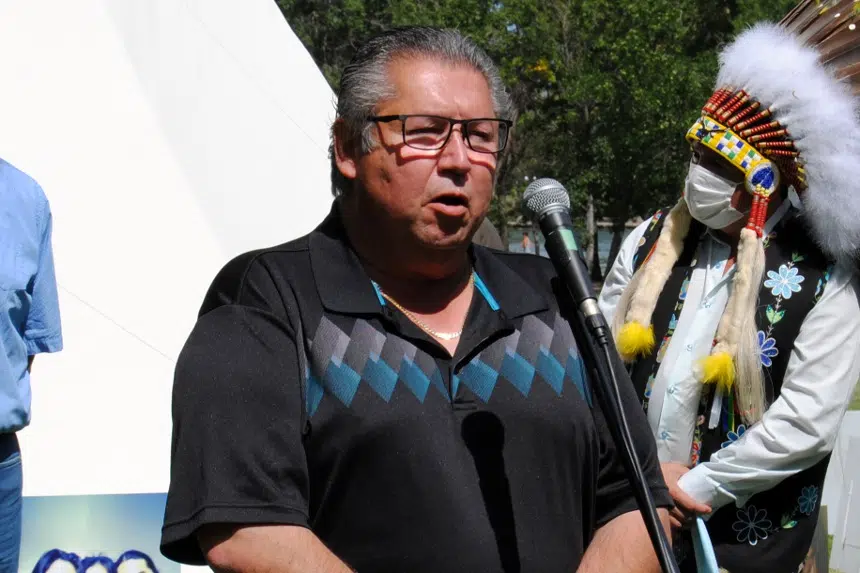NDP MLA Doyle Vermette was overwhelmed and emotional Friday afternoon, just minutes after the Legislative Assembly unanimously passed The Saskatchewan Strategy for Suicide Prevention Act after the third time he introduced it.
“The government and Her Majesty’s loyal opposition came together for the people, and the people have won, of this province. And that’s what it’s about and should be about sometimes,” said Vermette.
“We have many days to disagree and debate stuff in the chamber, but today we can say we walked away and Saskatchewan people, those struggling with mental health, you won. And we’re going to do everything we can. That’s the commitment I’ve got and what I think I’ve heard from the government supporting this.”
Vermette said he was thinking of the families back home and everyone who’ve lost loved ones.
“This is your victory,” he said. “This is everyone who has walked, signed a petition, mother, father, grandparents, lost a loved one who asked us, ‘Don’t give up.’ ”
Vermette said it was a long road with many challenges.
“At times I was angry and I wasn’t happy with the government when I heard that we buried another person back home,” he said. “I’ve lost friends. I’ve lost kids that I watched grow up and had to be there supporting the family.”
Vermette introduced the bill for the first time in 2018 and then again in 2019, but both times it was voted down by the Saskatchewan Party members.
Last summer, Tristen Durocher walked more than 600 kilometres from Air Ronge to the legislative building to bring awareness to the suicide problem. He camped on the legislative lawns and engaged in a 44-day hunger strike — one day for every member who voted the bill down.
In his remarks Friday, Vermette thanked Durocher for making sure they have hope. He believes Durocher’s camp made the public look at the problem again and had a lot to do with the government taking a second look at everything.
When the Sask. Party declined to support the bill the last time, members argued the government’s “Pillars for Life” strategy was good enough — though it had been criticized by some as not doing enough.
Everett Hindley, the minister for mental health and addictions, said Friday the party changed its mind after hearing from many people during the election and since.
“We were hearing … from the voters, from the people of Saskatchewan that they felt it was also important to pass this legislation as well,” said Hindley.
Hindley praised Vermette for being the driving force behind the legislation.
“No one doubts his sincerity. He has been very passionate about this issue during his time as a member here and he has worked very hard to represent his constituents, and he has done an excellent job of doing that,” said Hindley.
He also talked about Sask. Party MLA Derek Meyers, whom Hindley said had advocated for the issue. Meyers’ daughter died by suicide last fall.
The bill requires consultations to be done with 180 days of the law coming into force, ultimately creating a suicide prevention strategy.
It would also require annual reports from the Ministry of Health on progress, provide guidelines on public awareness and knowledge, make information about statistics and risk factors available, promote collaboration, define best practices for suicide prevention, and promote the use of research and evidence-based practices.
However, it’s not clear how much change the passing of the bill will create.
Hindley still points to “Pillars for Life” as a main point for the government. He said consultations went into the creation of that and it remains the province’s strategy.
“We’re approaching the first anniversary of the launch of ‘Pillars for Life’ and we’ll want to be talking about where we’ve come and there might be some ideas there as to where we need to go going forward,” said Hindley.
The minister said the new legislation will help formalize “Pillars for Life” and will enhance things like the reporting periods. He couldn’t say exactly what might change on the ground in terms of service delivery.
Though the bill has passed, Vermette isn’t done. He said there’s still a lot of work to do and he’s planning on making sure the government does what it needs to do.











